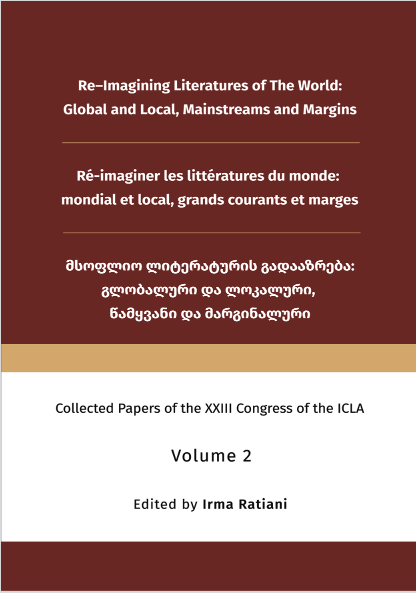Widowhood: A Cultural Study and Its Impact on Diasporic Female Identity
Main Article Content
ანოტაცია
From the South-Asian perspective widows are considered as inauspicious and harbinger of bad luck. They are subjected to abusive practices, such as violation of human rights, and physical and emotional violence, under the pretext of social and cultural taboos. However, this paper explores how widows contest stereotypical norms, as established by the conventional South Asian society, in the diasporic context. Through a comparative analysis of the female characters in the novels of Jhumpa Lahiri’s The Namesake (2003), Bharati Mukherjee’s Jasmine (1989), and Krutin Patel’s film, ABCD: It’s About Choices (1999), I argue that widowhood provides some sort of emancipation to these diasporic women. The narratives highlight the struggles that the protagonists, Ashima, Jasmine, and Anju undergo after the demise of their husbands. Women are considered to be the bearers of their home culture. When diasporic women migrate from their home countries to the host nation, along with their physical displacement, they also carry their cultural traditions with them. So, even when they are away from their homeland, these women are expected to abide by their native traditions. However, despite the struggles, these widows have been able to gain agency to a certain extent, which would not have been possible in the presence of their husbands owing to the stereotypical notion that men make all the important decisions in the family and women are expected to conform to them. Although it has to be acknowledged that the nature of their agency varies. While Lahiri’s protagonist, Ashima and Mukherjee’s heroine, Jasmine are able to adapt to the host culture, Anju, in Patel’s film, finds it difficult to assimilate in the American traditions. Furthermore, I will probe into the intersectional differences, such as differences in class, social status and age that exist among the widows, which have a significant impact on their identity formation.
